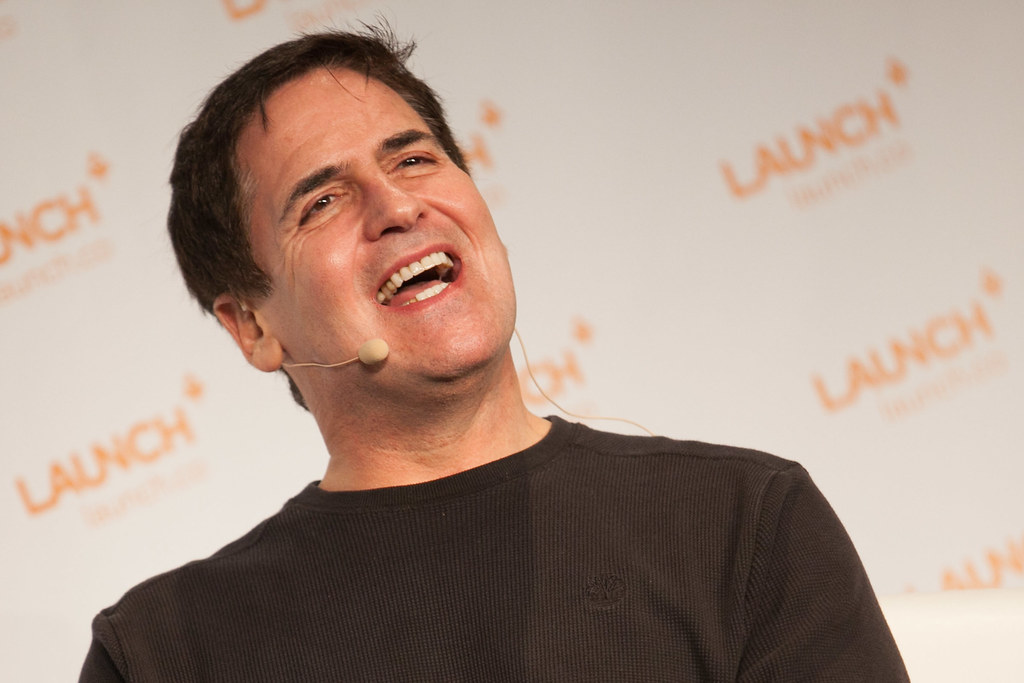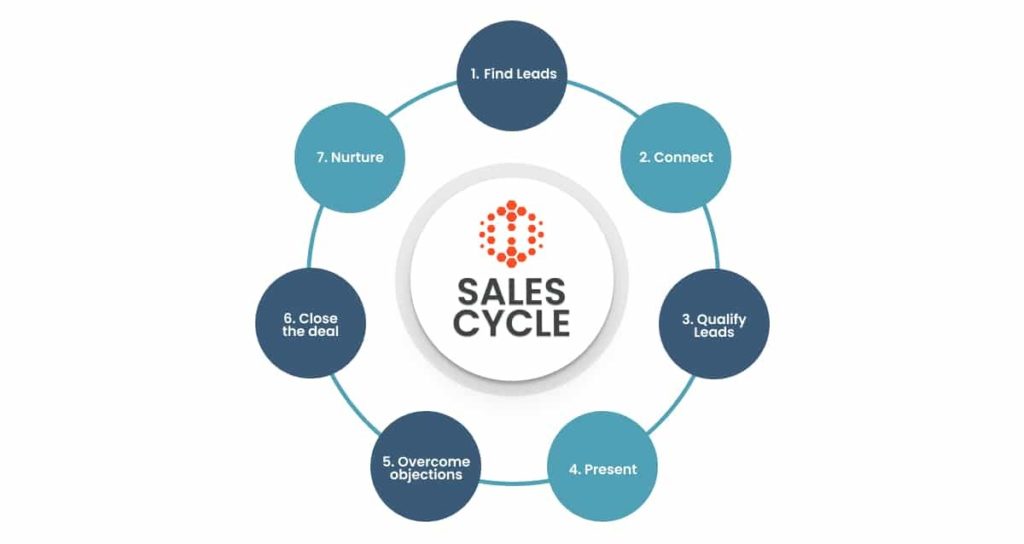
In the vast landscape of American commerce, small businesses are the bedrock, the engine of innovation and opportunity. With a staggering “little over 33 million small businesses” populating the country, as noted by the Office of Advocacy, they represent nearly the entire business ecosystem. While the allure of starting a new venture is strong, the true test lies in transforming a nascent idea into a thriving, sustainable enterprise. This journey is fraught with challenges, and navigating it successfully requires not just ambition, but wisdom, foresight, and an unshakeable resolve.
For decades, billionaire investor Mark Cuban, owner of the Dallas Mavericks and a seasoned entrepreneur, has offered a unique blend of street-smart wisdom and strategic insight gleaned from his own remarkable trajectory. From selling trash bags at age 12 to building and selling companies like MicroSolutions and Broadcast.com for billions, Cuban’s experiences are a masterclass in seizing opportunities and overcoming formidable obstacles. His counsel extends beyond typical business school theories, focusing instead on the gritty realities and psychological fortitude essential for success.
Now, as small business owners and entrepreneurs face an ever-evolving economic landscape, Cuban’s practical advice resonates more strongly than ever. He champions a pragmatic, action-oriented approach, distilling complex entrepreneurial challenges into clear, actionable principles. In this in-depth exploration, we delve into some of the most profound lessons from Mark Cuban, designed to equip you with the insights needed to not just start a business, but to build an enduring legacy in 2025 and beyond.

1. **Learn to Filter Out Advice**
One of the most insidious traps for nascent entrepreneurs is the overwhelming deluge of unsolicited advice. Everyone, from well-meaning friends to potential customers, seems to have an opinion on what you should do, how you should change your product, or where your business should head. Mark Cuban cautions against indiscriminately absorbing every suggestion, emphasizing that discerning sound counsel from distracting noise is paramount for survival and growth.
As Cuban keenly observed to CNBC Make It, “When you’re just getting started in a small business, it’s easy to drown an opportunity if you let yourself get pulled by different ideas.” This pull can be incredibly strong, especially when you’re eager for feedback and validation. Customers, in particular, might offer tempting suggestions, saying things like, “Oh I love your product, but I would buy more if you only did this [or] if you change just one little thing.” While customer feedback is vital, the entrepreneur must maintain control of the vision.
Cuban’s crucial takeaway here is simple yet profound: “You have to sell to them versus them selling to you.” This means maintaining the integrity of your core offering and not allowing external voices to dictate your business’s fundamental direction. If you find yourself constantly tweaking your business plan in response to every piece of criticism, you risk losing sight of the original goal that fueled your passion and drive, ultimately jeopardizing your venture’s coherence and chance of success.
True entrepreneurial vision requires a steady hand and a clear filter. It’s not about ignoring all feedback, but about critically evaluating it against your mission, your market research, and your long-term objectives. The ability to distinguish constructive input from mere distraction or personal preference is a hallmark of resilient leadership, ensuring your business evolves strategically rather than being buffeted by every passing breeze of opinion.
Read more about: Bruce Willis’ Wife Emma Heming Willis Makes Heartbreaking Divorce Confession: An Unexpected Journey Through Love and Dementia
2. **Know When to Make a Change**
While filtering advice is about maintaining your focus, knowing when to pivot or adjust your strategy is about staying agile and responsive to the market’s undeniable realities. Not every initial business idea or approach is destined for greatness, and even a beloved strategy can prove to be a financial dead end. Cuban’s advice cuts straight to the chase: if you aspire to long-term success, you must be acutely aware of when a change is not just advisable, but absolutely necessary.
At the heart of this crucial insight is a simple metric: the money. Cuban’s guidance is unwavering: “When you see there’s no money coming in, that’s a sign to change strategies, to lean toward or away from that customer feedback.” This isn’t about being disloyal to an idea, but about being loyal to the viability of your business. Financial indicators are the most objective and brutal arbiters of your strategy’s effectiveness, and ignoring them is a recipe for eventual failure.
This principle demands a high degree of intellectual honesty and the courage to abandon what isn’t working, even if it’s something you’ve invested heavily in emotionally and financially. It means stepping back, analyzing the flow of revenue, and being prepared to make difficult decisions about product features, target demographics, pricing models, or even the fundamental service you offer. Customer feedback, in this context, becomes a tool for refinement rather than a directive for a complete overhaul, helping you to “lean toward or away from that customer feedback” based on actual financial performance.
Ultimately, success isn’t just about starting; it’s about adapting. Entrepreneurs who thrive are those who are not only passionate but also pragmatic, capable of reading the market’s signals and having the resolve to adjust their course before the ship sinks. Paying close attention to the financial pulse of your business provides the clearest signposts for when to hold firm and when to boldly embrace a new direction.
Read more about: Beyond the Limelight: 14 Inspiring Celebrities Who Are Redefining Fame Through Powerful Philanthropy

3. **Build Confidence in Yourself**
Entrepreneurship is a grueling marathon, not a sprint, and the path is inevitably littered with setbacks and challenges. The statistics are a stark reminder of this reality: “Roughly 20% of small businesses don’t make it past their first year, according to the U.S. Bureau of Labor Statistics. The success rate goes down from there with only about 30% of small businesses making it to year 10.” In such an environment, the ability to maintain unwavering confidence in yourself and your vision becomes a cornerstone of success.
Mark Cuban isn’t alone in recognizing the power of self-belief. Successful author and business owner Bonnie Low-Kramen, in her book “Staff Matters: People-Focus Solutions for the Ultimate New Workplace,” underscores this profoundly. She writes, “Confidence is serious business and the single most important differentiator in the workplace.” This statement highlights that confidence isn’t merely a pleasant personal attribute; it’s a critical professional asset that can sway outcomes significantly.
Low-Kramen further illustrates this point with a compelling observation: “It will be the person with high confidence and lower abilities who will get the job over the person with low confidence and higher abilities.” This suggests that a confident demeanor can often open doors that might otherwise remain closed, even when faced with more technically skilled competitors. In the high-stakes world of business, projecting conviction can inspire trust, attract partners, and reassure customers, making it a potent force in your favor.
Through all the “little – and big – bumps along the way,” as the journey inevitably presents, maintaining confidence is key. It’s the inner fuel that helps you persist when external validation is scarce and the market seems indifferent. Cultivating this self-assurance is not about arrogance, but about a deep-seated belief in your capacity to learn, adapt, and ultimately succeed, providing the resilience needed to navigate the demanding terrain of entrepreneurship.
Read more about: From Red Carpet to Director’s Chair: 15 Actresses Who Are Absolutely Crushing It Behind the Camera!

4. **Find What You’re Good at and Pursue It**
Amidst the seemingly countless business ideas circulating today, a fundamental truth often gets lost: true success often stems from aligning your venture with your inherent strengths and genuine interests. Mark Cuban passionately advocates for finding that unique intersection of talent and enjoyment, asserting that pursuing what you’re genuinely good at is a far more reliable path to building a successful enterprise than chasing fleeting trends.
In a YouTube video, Cuban shared this essential piece of wisdom: “Find the things that you can enjoy, be curious. You don’t have to have all the answers but just be curious because you don’t have to have the answers.” This speaks to the iterative nature of entrepreneurship, where curiosity drives continuous learning and problem-solving. It’s not about knowing everything from day one, but about having the intrinsic motivation to explore and master your chosen domain.
Cuban’s belief in individual talent is profound: “I’m a hardcore believer that everybody has something that they’re really, really, really good at. The hard part is just finding what that is.” This insight shifts the focus from external opportunities to internal capabilities, suggesting that the most powerful business ideas are often deeply personal. Once this inherent strength is identified, the directive is clear: pursue it with conviction.
By committing to a venture rooted in what you enjoy and excel at, your “odds of success will increase exponentially.” This is because passion fuels persistence, drives skill acquisition, and makes the arduous work of building a business feel less like a chore and more like a fulfilling endeavor. The AI Cuban chatbot echoed this sentiment, advising, “Pick something you know well or something you’re good at,” reinforcing that this foundational self-awareness is critical for any aspiring entrepreneur.
Read more about: Who Runs the World? Get to Know the 15 Most Famous Celebrities of 2025!
5. **Don’t Leave Your 9-to-5 Without a Plan**
The narrative of the entrepreneur who dramatically quits their stable job to chase a dream is often romanticized in popular culture. However, Mark Cuban, a seasoned veteran of the entrepreneurial battlefield, offers a far more grounded and cautionary perspective. He starkly reminds aspiring business owners that the untold stories are often those of spectacular failure, emphasizing the critical importance of meticulous planning before taking the monumental leap from employment to entrepreneurship.
During a 2023 Wired Q&A, Cuban challenged the glamorous portrayals, stating, “We hear all of these stories about all of these people who quit their jobs, started a company and made all of this money. What you don’t hear are the stories of the people who quit their jobs, started a company and failed miserably, and are now working at a job they hate.” This serves as a vital reality check, underscoring that while ambition is commendable, it must be tempered with strategic foresight and a robust safety net.
Cuban provides concrete, actionable steps for anyone contemplating this transition. His advice is unambiguous: “Before you quit, be prepared, know what you’re doing, save your money, have at least six months to live off, if you can. And, then, maybe you’re ready to start your business.” This isn’t just about financial prudence; it’s about psychological preparedness. Having a buffer allows you to focus on building your business rather than being consumed by immediate financial anxieties, which can cripple a startup before it even gains traction.
Leaving a stable job is a high-stakes decision that requires careful calculation. It’s about minimizing avoidable risks and maximizing your chances of survival during the often lean initial phases of a new company. Cuban’s counsel is a powerful call to responsible entrepreneurship, urging founders to lay a solid groundwork and ensure they possess the necessary resources and understanding to weather the inevitable storms that accompany a new venture.
6. **Be an Expert**
For Mark Cuban, the path to becoming a millionaire and, more broadly, a successful entrepreneur, is inextricably linked to unparalleled expertise. It’s not enough to have a good idea or even strong ambition; to truly control your destiny, you must establish yourself as the foremost authority in your chosen domain. This profound knowledge acts as both a shield and a sword in the competitive arena of business.
Cuban articulated this principle vividly during a 2022 GQ video Q&A, offering a direct challenge: “If you want to be a millionaire, you can do it, but there’s a couple things you have to be able to accomplish …. [For example,] when you walk into a room, you [need to] know your s— better than anyone else in the room.” This isn’t about arrogance, but about rigorous preparation and an obsessive commitment to understanding every facet of your industry, product, or service.
This level of expertise breeds an inherent confidence and credibility that cannot be faked or bought. It allows you to anticipate market shifts, identify opportunities, and solve problems with a depth of understanding that others lack. Cuban emphasizes that reaching this point of supreme competence is precisely “when it’s time to start a company. Then, you can start to control your own destiny.”
Knowing your domain inside and out means you can make informed decisions, articulate your vision clearly, and earn the trust of customers, investors, and employees. It enables you to differentiate your offering, innovate effectively, and navigate challenges with an authoritative perspective. This deep expertise empowers you to lead, to set your own course, and to carve out a unique and defensible position in the market, rather than being a follower.
Read more about: Driving Expert’s ‘Clever’ Hack: Stop Tailgaters Safely Without Ever Touching Your Brakes

7. **Don’t Be Afraid to Lose It All**
Mark Cuban’s journey is a testament to the transformative power of resilience, particularly the profound strength that emerges when one has nothing left to lose. He vividly recounts his early struggles, including sleeping on the floor with six roommates, and distills from these experiences a crucial lesson for entrepreneurs: embracing the “power of broke” can be the most potent catalyst for success.
During a 2023 SXSW panel, Cuban articulated this philosophy with raw honesty: “When you’ve got nothing to lose, you go for it.” This mindset liberates entrepreneurs from the paralysis of fear, allowing them to take bold, decisive actions they might otherwise shy away from. Without a safety net, every effort is magnified, every decision carries greater weight, and complacency becomes an unaffordable luxury.
His personal narrative drives this point home powerfully: “And when your back’s against the wall, you’re sleeping on the floor and your buddies are stepping over you to go to their job and you’re starting this company, you realize, ‘OK, I’ve only got one direction.'” This imagery evokes a singular focus, an absolute determination to succeed because failure simply isn’t an option. It’s in these moments of extreme pressure that true grit and innovative solutions often emerge.
The “power of broke” isn’t a romantic idealization of poverty, but a recognition of the intense drive it can ignite. It strips away distractions, forces resourceful thinking, and cultivates an unparalleled work ethic. For Cuban, having been in that position, it taught him to go all-in, to commit unequivocally to his venture. This willingness to risk everything, and the clarity it provides, can be the ultimate differentiator for entrepreneurs striving to make their mark.
Having laid the groundwork with foundational mindsets and strategic preparedness, we now shift our focus to the operational excellence and growth strategies that can truly elevate a business. Mark Cuban’s insights extend beyond just getting started, delving into the practicalities of sustained success, from aligning passion with profitability to building resilient teams and robust frameworks. These are the actionable blueprints for not just surviving, but thriving, in the competitive landscape of entrepreneurship. His wisdom helps entrepreneurs navigate the complexities of scaling, marketing, and protecting their ventures, all while fostering an environment where innovation and dedication flourish.
Read more about: Grab the Tissues: The 10 Movie Deaths That Will Still Make You Absolutely Bawl Your Eyes Out
8. **The Nuance of Passion vs. Money**
Mark Cuban has famously sparked debate by advising entrepreneurs to “don’t follow your passions-follow the money and build wealth instead.” This seemingly contrarian view underscores a pragmatic approach to business, where financial viability is not just a goal, but a fundamental metric for strategic direction and survival. For Cuban, the ultimate test of any venture lies in its ability to generate revenue and sustain itself, a brutal yet honest assessment of market demand and product-market fit.
However, this perspective isn’t without its powerful counterpoints, particularly as articulated by Forbes Advisor. While Cuban champions financial pragmatism, the critical role of passion cannot be overstated. Forbes highlights that passion is the engine that drives an entrepreneur to acquire the necessary skills to excel, enabling them to stand out in a crowded market. It’s the intrinsic motivation that propels individuals to become winners, not just participants, in the entrepreneurial race.
Moreover, passion plays an indispensable role in navigating the treacherous early stages of an emerging trend. As Forbes points out, most billion-dollar entrepreneurs enter industries before they have clearly defined themselves, when the risks are exceptionally high and the potential is still murky. This willingness to commit time and resources when others, including risk-averse corporations and VCs, wait for clearer signals, is often fueled by an unwavering passion for the domain.
Passion is also the anchor that keeps entrepreneurs engaged during the often lengthy period it takes for ventures to gain traction. With many emerging industries requiring years to take off—PCs, for instance, took seven years—the struggle during the lean years can be immense. Forbes states that passion helps founders stay committed, working 18-hour days because the endeavor itself feels like “fun,” rather than seeking refuge in a corporate job. While passion alone isn’t sufficient, it is a necessary condition for enduring the arduous journey to entrepreneurial success.
Read more about: Beyond the 911: 10 Thrilling Sports Cars That Deliver Porsche-Level Performance for Less

9. **Sales Cure All**
In the gritty reality of starting and growing a business, there’s a fundamental truth that Mark Cuban champions: “Sales Cure All.” This concise yet potent statement cuts through much of the theoretical noise surrounding entrepreneurship, pinpointing the singular most critical activity for any venture’s survival and growth. Without sales, a brilliant idea remains just an idea, and a well-crafted product stagnates on the shelf.
Cuban emphasizes the need for entrepreneurs to have an intimate understanding of their revenue streams: “Know how your company will make money and how you will actually make sales.” This isn’t about vague projections or hopeful expectations; it’s about a concrete, actionable plan for generating income. It demands a clear strategy for identifying target customers, communicating value, and converting interest into transactions.
When it comes to acquiring new customers, Cuban advises a straightforward, organic approach that minimizes costly marketing campaigns. He suggests that if you truly have a great product or service, your customers themselves will become your most effective marketers, sharing their positive experiences organically. This speaks to the power of word-of-mouth and genuine customer satisfaction in building a loyal base.
His philosophy on selling itself is equally insightful: “Selling isn’t convincing. Selling is just opening a door and saying, ‘Do you love it as much as I do? Or, can I help you?'” This reframes sales as an act of connection and assistance rather than aggressive persuasion. It encourages entrepreneurs to approach potential customers with genuine enthusiasm for their offering and a sincere desire to solve problems, trusting that passion and persistence will ultimately open the right doors.
Read more about: The Vanguard of Safety: 15 Hybrid Models Earning Top IIHS and NHTSA Accolades for 2024-2025
10. **Master Your Core Competencies**
Building a successful business hinges on a deep understanding of what you do best and dedicating your resources to those strengths. Mark Cuban’s actionable advice underscores this: “Know your core competencies and focus on being great at them.” This principle advocates for a laser-like focus on the unique capabilities that differentiate your business and provide a competitive advantage, rather than diluting efforts across too many areas.
This strategic focus extends directly to your hiring practices. For positions directly tied to your core competencies, Cuban’s guidance is clear: “Pay up for people in your core competencies. Get the best.” Investing in top-tier talent for these critical roles ensures that your foundational strengths are continuously reinforced and elevated. These are the individuals who will drive innovation, maintain quality, and execute essential functions at the highest level.
Conversely, when it comes to roles outside of your core competencies, the hiring strategy shifts. While still vital, these positions don’t necessarily require the same premium investment. Here, the emphasis is on finding individuals who seamlessly integrate into your company’s culture. Cuban suggests to “hire people that fit your culture but aren’t as expensive to pay,” ensuring operational efficiency without sacrificing the cohesive environment that fosters productivity.
This discerning approach to staffing ensures that precious early-stage capital is allocated strategically, maximizing impact where it matters most. By recognizing and investing in your true strengths, you build a business that is not only efficient but also exceptionally strong in the areas that define its identity and market value, setting a solid foundation for sustainable growth.
Read more about: Understanding the Multifaceted Nature of ‘Working’ When Returning to Employment: An Analytical Guide
11. **Embrace a Flat Organizational Structure**
For startups striving for agility and open communication, Mark Cuban vehemently advocates for a flat organizational structure. His advice is unequivocal: “Keep the organization flat. If you have managers reporting to managers in a startup, you will fail.” This challenges traditional hierarchical models, asserting that excessive layers of management stifle innovation, create bottlenecks, and dissipate the collective energy crucial for a nascent venture.
Even as a company grows beyond its initial startup phase, the dangers of hierarchical bloat persist. Cuban warns that “Once you get beyond startup, if you have managers reporting to managers, you will create politics.” Such structures can lead to internal power struggles, communication breakdowns, and a diversion of focus from core business objectives to bureaucratic maneuvering. A flat structure, by contrast, promotes direct communication and minimizes opportunities for siloed thinking.
His concerns about organizational structure extend to the types of individuals hired into leadership roles. Cuban expresses a strong aversion to “empire builders,” individuals who prioritize expanding their personal teams and influence over the company’s overall mission. He candidly shares his biggest fear: “My biggest fear was always hiring someone who wanted to build an empire. If the person demands to fly first class or to bring over a personal secretary, run away. If an exec won’t go on sales calls, run away. They are empire builders and will pollute your company.” Such individuals can undermine the lean, collaborative spirit essential for entrepreneurial success.
This philosophy is also reflected in practical technology choices for a startup. Cuban advises, “go with what you know. That is always the most inexpensive way. If you know Apple, use it… It’s a startup so there are just a few employees. Let people use what they know.” This pragmatic approach further emphasizes efficiency and minimizes unnecessary complexity, allowing the team to focus on core work without being hindered by unfamiliar or expensive tools.
Read more about: Unlock Your Potential: 15 Simple Yet Powerful Productivity Hacks You Can Master Today
12. **Smart Marketing: Ditch the PR Firm, Be Your Own Storyteller**
In an age where information is abundant and attention is currency, Mark Cuban offers a refreshingly direct and cost-effective approach to public relations and marketing. His emphatic instruction, “Never hire a PR firm,” challenges conventional wisdom, suggesting that external agencies often add an unnecessary layer between you and the media, draining precious startup funds without guaranteed results.
Instead, Cuban advocates for a proactive, personal approach to securing media attention. He advises entrepreneurs to become their own publicists by directly engaging with journalists and content creators. “Whenever you consume any information related to your field, get the email of the person publishing it and send them a message introducing yourself and the company.” This direct line of communication can be far more effective than generic press releases filtered through a PR agency.
By establishing direct relationships, you can position yourself as an invaluable resource. Cuban suggests that once you’ve made contact, you should “make yourself available to answer their questions about the industry and be a source for them.” Journalists are constantly seeking fresh, authentic content and expert insights; offering yourself as an accessible and knowledgeable resource can lead to genuine media opportunities and positive coverage that truly resonates.
He also offers a memorable piece of advice regarding promotional items: “Never buy swag. A sure sign of failure for a startup is when someone sends me logo-embroidered polo shirts.” Cuban implies that true brand loyalty isn’t built on freebies but on the intrinsic value of your product or service. This philosophy reinforces the idea that resources should be directed toward substance and direct engagement rather than superficial marketing tactics.

13. **Safeguard Your Future with an LLC**
Navigating the legal landscape is an often-overlooked but absolutely critical aspect of entrepreneurial success. Mark Cuban’s advice highlights the importance of protecting your personal assets from the inherent risks of business, particularly in today’s environment. As he notes, “We live in a very litigious society these days,” underscoring the potential for legal challenges that can arise even for well-intentioned businesses.
To mitigate these risks, Cuban provides clear, actionable guidance: “And one of the best things you can do is to incorporate. The best form of incorporation is what they call an LLC.” An LLC, or Limited Liability Company, offers a crucial barrier between your personal finances and your business operations. This legal structure is designed to shield your individual wealth from business debts or lawsuits, offering peace of mind.
This protection extends to your most valuable personal possessions. Cuban explains that “With an LLC, you are protecting your personal assets, like your own car, house, and savings.” This separation is vital for any entrepreneur, as it allows you to take calculated business risks without jeopardizing your family’s financial security. It provides a necessary safety net, enabling you to focus on growth rather than constant anxiety over potential liabilities.
Moreover, proper incorporation adds a layer of legitimacy to your business, which can be beneficial when seeking partnerships, loans, or investments. While the legalities might seem daunting, establishing an LLC is a fundamental step in building a robust and resilient business foundation. It’s a proactive measure that embodies the strategic foresight necessary for long-term entrepreneurial success, allowing you to operate with greater confidence and security.
Read more about: Decoding Hybrid Reliability: The 11 Models You Should Approach with Caution Due to Premature Electrical and Battery Failures
14. **Cultivate a Fun and Rewarding Workplace**
Beyond strategy and legal structures, the human element of a business is paramount, and Mark Cuban understands the profound impact of a positive work environment on productivity and loyalty. His philosophy emphasizes making the workplace enjoyable: “Make the job fun for employees. Keep a pulse on the stress levels and accomplishments of your people and reward them.” This isn’t just about perks; it’s about recognizing effort and fostering a culture where hard work is acknowledged and celebrated.
Cuban provides tangible examples from his own ventures, MicroSolutions and Broadcast.com, demonstrating how he actively incentivized and rewarded his teams. From “handing out $100 bills to salespeople” for record sales months to organizing “company shot” events at a bar, these gestures created a sense of shared success and camaraderie. Such experiences bond teams, turning colleagues into a cohesive unit driven by collective ambition.
Even the physical workspace and daily routines reflect this philosophy. Cuban advocates for “Open offices [that] keep everyone in tune with what is going on and keep the energy up.” This design promotes transparency and collaboration, preventing isolation and encouraging spontaneous interaction. While some may crave privacy, his view is that “There is nothing private in a startup,” underscoring the intense, collaborative nature of building a new venture.
His approach to office amenities is equally pragmatic and telling. “An espresso machine? Are you kidding me? Coffee is for closers. Sodas are free. Lunch is a chance to get out of the office and talk.” This isn’t about deprivation, but about intentionality. It’s a reminder that working hard and staying connected are paramount, viewing lunch as an opportunity for networking and mental reset rather than an in-office perk. By making work engaging and rewarding, entrepreneurs can unlock the full potential of their teams, turning dedication into a driving force for success.
Read more about: The Quiet Quitting Phenomenon: Why Younger Generations Are Fundamentally Changing the Workplace
Mark Cuban’s journey from selling trash bags to building and selling multi-billion-dollar enterprises is a powerful testament to his unique brand of entrepreneurial wisdom. His advice, distilled from decades of real-world triumphs and setbacks, offers a robust framework for navigating the complex world of business. From the critical importance of self-belief and strategic planning to the practicalities of sales, organizational structure, and legal protection, his insights provide a comprehensive guide for aspiring and established business owners alike. In a world awash with fleeting trends and theoretical doctrines, Cuban’s pragmatic, action-oriented lessons stand out as timeless principles, empowering entrepreneurs not just to dream, but to build, to adapt, and ultimately, to achieve enduring success in 2025 and well beyond.











